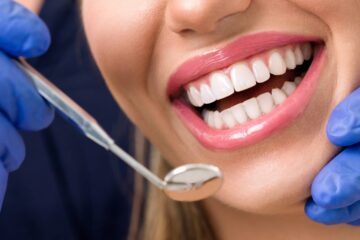You’ve just walked out of the dentist’s office, flashing your dazzling, newly bonded smile at everyone you meet.
But wait! Don’t let the excitement make you forget your new responsibility. It’s not just a smile, it’s an investment you’ve got to protect.
This guide will navigate you through the do’s and don’ts of maintaining that irresistible grin. From regular check-ups to dietary changes, we’ve got you covered.
Let’s keep that smile sparkling, shall we?
Key Takeaways
– Brush and floss daily to prevent stains and maintain oral health.
– Avoid biting on hard objects or foods to prevent damage to the bonding.
– Schedule a dental check-up every six months to maintain the health of your bonded teeth.
– Avoid hard, crunchy foods, sticky, chewy foods, acidic drinks, and alcohol to protect the bonding material.
Understanding Composite Bonding Maintenance
After getting your teeth bonded, it’s crucial you understand the steps to maintaining the shine and health of your new smile. The bonding lifespan can vary depending on your oral habits, but with proper care, it can last up to ten years. To ensure this longevity, you’ll need to follow a few key steps.
Firstly, it’s important to brush and floss daily. This prevents stains and keeps your teeth healthy.
Secondly, avoid biting on hard objects or foods, as these can damage the bonding. Regular dental check-ups are also essential to monitor the condition of your bonded teeth and ensure they’re in good shape.
Post-procedure sensitivity is another aspect to keep in mind. It’s normal to experience some sensitivity in your teeth after the bonding procedure, but this usually subsides within a few days. If it persists, you should consult your dentist.
Lastly, remember that while bonding can significantly enhance your smile, it’s not invincible. Treat your bonded teeth with care, avoid harmful habits, and commit to a good oral hygiene routine. By doing so, you’ll ensure that your beautiful new smile lasts for as long as possible.
Importance of Regular Dental Check-ups
Every six months, you should schedule a dental check-up to keep your bonded teeth in top shape. Regular dental appointments aren’t just important, they’re essential for maintaining the health and aesthetics of your newly bonded teeth.
The check-up benefits are numerous. Dentists can spot potential issues early, such as minor cracks or wear on the bonding, and take preventive measures before they escalate. This could save you from future discomfort and costly procedures. Your dentist will also professionally clean your teeth, removing plaque and tartar that brushing at home can’t eliminate. This preventive measure is crucial in avoiding gum disease and tooth decay that could potentially impact your bonding.
Moreover, regular check-ups provide an opportunity for your dentist to assess the effectiveness of your dental hygiene routine. They can offer personalised advice on how to better care for your bonded teeth at home, ensuring they stay healthy and beautiful for years to come.
Dietary Guidelines for Bonding Care
You’ll need to pay close attention to what you eat and drink as your diet plays a crucial role in the longevity of your composite bonding. The first step towards care is food avoidance. Hard, crunchy foods like apples, nuts, and popcorn can chip or crack the bonding material. Sticky, chewy foods such as caramel or taffy can pull the composite bonding away from your tooth. It’s best to steer clear of these for the sake of your new smile.
Alongside food avoidance, you also need to consider bonding friendly beverages. Acidic drinks, like coffee, tea, or soda, can stain and erode the bonding, dulling its shine. Alcohol, on the other hand, can weaken the bonding material. Opt for water and milk, which aren’t only beneficial for your overall health, but also help maintain the brightness of your bonded teeth.
Essential Oral Hygiene Practices
Beyond watching your diet, maintaining excellent oral hygiene is pivotal to preserving your composite bonding’s longevity and brilliance. It’s not just about your teeth; gum health plays a significant role too. The health of your gums can affect the stability and lifespan of your bonding.
To keep your composite bonding in top shape, consider these essential oral hygiene practices:
– Regular tooth brushing, preferably twice daily, using a soft-bristled toothbrush and non-abrasive toothpaste. This reduces plaque build-up and prevents staining.
– Daily flossing to remove food particles and bacteria that brushing may miss. It’s crucial for gum health and overall oral hygiene.
– Regular dental visits for professional cleanings and check-ups. Your dentist can detect any potential issues early and provide advice tailored to your needs.
Remember, your oral hygiene habits directly impact the success of your composite bonding. Gum health and diligent tooth brushing are keys to maintaining your new smile.
But what if despite your best efforts, you notice issues with your bonding? Don’t fret. In the next section, we’ll discuss how to deal with potential bonding issues.
Dealing With Potential Bonding Issues
Despite your diligent oral hygiene routine, there’s a chance you might encounter some issues with your bonding. Don’t panic, though. It’s crucial to know what to do in these situations to ensure bonding longevity and handle emergencies effectively.
Firstly, if you notice any sharp edges on your bonded tooth or if it feels different when you bite down, it’s likely that the bonding has chipped or worn down. This isn’t something to ignore. Make an appointment with your dentist as soon as possible to have it repaired.
Discoloration of the bonding can also occur over time due to habits like smoking or consuming staining foods and drinks. If you notice your bonded teeth turning yellow or brown, reach out to your dentist. They can polish the surface to restore its original colour or replace the bonding if necessary.
Lastly, in case of a bonding failure, don’t try to reattach the piece yourself. Keep it safe and contact your dentist immediately. Emergency handling of such incidents is essential to prevent further damage and to maintain the integrity of your smile. You’ve invested in your smile, so protect it with informed, prompt action.
Frequently Asked Questions
Can I Use Whitening Toothpaste on My Composite Bonding?
Yes, you can use whitening toothpaste on your composite bonding. However, it won’t change the bonding’s colour. To prevent composite bonding discoloration, consider bonding longevity factors like avoiding staining foods and drinks.
How Much Does It Typically Cost to Maintain Composite Bonding?
Costs for maintaining composite bonding can vary. However, don’t let your pockets burn. Depending on your insurance coverage and bonding’s lifespan, you’re typically looking at routine dental check-ups and possible future touch-ups.
Are There Any Specific Cosmetic Products I Should Avoid Using on My Teeth After Composite Bonding?
Yes, you should avoid toothpastes with harsh abrasives. Opt for bonding safe toothpastes and composite friendly mouthwash. They’re gentle on your bonded teeth and help maintain their polish and colour.
Can I Still Get Cavities With Composite Bonding?
Yes, you can still get cavities with composite bonding. It’s crucial to maintain good oral hygiene to extend bonding lifespan. Regular brushing, flossing, and routine dental checkups are key for optimal composite care.
Is It Safe to Smoke or Consume Alcohol After Getting Composite Bonding?
Yes, you can smoke and drink alcohol after composite bonding. However, it’s not recommended. Smoking impacts the bonding’s longevity and alcohol effects can weaken it. It’s best to avoid both for lasting results.
Conclusion
You may think maintaining your new smile post-composite bonding is a hassle. But, it’s as simple as regular dental check-ups, maintaining a tooth-friendly diet, and practising good oral hygiene.
Ensure you’re prepared to handle potential bonding issues. Your dazzling smile is worth the effort, and with proper care, it’ll last for years to come.
Remember, a little maintenance goes a long way in preserving your confident and radiant smile.





